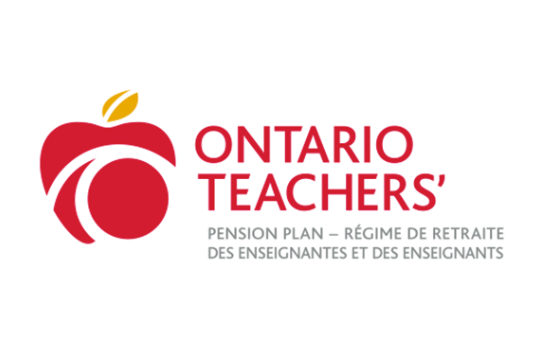


Asset owners, asset managers, and companies created FCLTGlobal to encourage a longer-term focus in business and investment decision-making across the investment value chain. Institutional investors particularly have emphasized the importance of the mandate agreement between asset owners and asset managers as one way to improve this focus. Such agreements set the incentives and parameters for how they will invest together, so it was the right place to start for changing investment behavior.
FCLTGlobal published Institutional Investment Mandates: Anchors for Long-term Performance in December 2017. Many of our members have put this research to work since then, including Ontario Teachers’ Pension Plan (Ontario Teachers’), which manages $201.4 billion on behalf of 327,000 working and retired teachers in the province.
Ontario Teachers’ and other asset owners are the clients in their relationships with asset managers, and they are empowered to start mandate negotiations on their own terms. Large asset owners always have standard investment management agreements (IMAs) to provide this framing (also called preferred terms, form/template IMA). Ontario Teachers’ has integrated many specifically long-term provisions into its standard long only equity IMA:
Ontario Teachers’ accounts for a tendency that all people share, which behavioral scientists call the “framing effect,” by including these long-term provisions in the standard IMA. The framing effect describes how the reference point at the start of a relationship frames everything that follows. For instance, having an investment relationship focused on the long term is very difficult when short-term information gets the spotlight and the strategy depends entirely on just a few key people. That sort of relationship is easier when the first bit of information in performance reports covers a long horizon and when institutions are transparent about how their relationship can last beyond the individual people who are involved today.
The standard IMA of an asset owner – a client – is the firmest frame that exists in mandate negotiations, and framing those negotiations with long-term provisions is the most systemic way in which an asset owner can use its mandates to increase focus on the long term. Ontario Teachers’ is doing exactly this in all of its new mandates and also gradually integrating these same provisions into existing agreements.
This work began with pilots that Ontario Teachers’ conducted, starting in early 2018. Ontario Teachers’ initial allocation was $200 million (CDN) to an emerging manager. This relationship offers Ontario Teachers’ access to new investment opportunities, the manager gets stability while establishing the business, and both enjoyed a chance to start fresh on the mandate provisions. Ontario Teachers’ and the manager used this opportunity deliberately by piloting provisions to report long-term performance first, discounting the management fee based on the length of the relationship, incorporating a declining fee for no-cause termination, and disclosing information about active ownership practices.
Ontario Teachers’ experience implementing this pilot was positive, so it increased funding to mandates using terms like these to $500m over the course of a year, and additional funding took the value to $700m by the end of 2019. Four mandates use these more extensive long-term provisions, including several that also measure performance fees on a multi-year horizon, and others are under negotiation. One of the biggest benefits has been reducing costs: the decision to include longevity discounts in their mandate provisions will reduce Ontario Teachers’ long-term projected management fee expenses.
Still, Ontario Teachers’ successful implementation of long-term mandate provisions has not come without challenges. Efforts to negotiate longevity discounts have been mixed, and operational inertia creates resistance from managers to reversing the order of performance reporting. Some have pushed back on the term because it requires them to change their code for generating performance reports, but many backed down when Ontario Teachers’ has insisted on the grounds of investment strategy.
Precedents for using long-term mandate provisions matter. Investors have the opportunity to take action that improves markets’ long-term focus – even as they also engage with sponsors, companies, and regulators – and the precedents that they set influence others to follow their lead. The precedents of Ontario Teachers’ are especially important.
When investors put FCLTGlobal’s research to work like this, it all adds up to more wealth for savers and more stable funding for companies.
FCLTGlobal will release more case studies over the coming weeks about how global institutional investors are setting precedents and shifting their behaviors to incorporate more long-term approaches into both their investment processes and organizational structures.

Report
2 March 2022 - A compilation of real-world examples of how FCLTGlobal’s members are putting long-term strategies into practice today.

Video
28 February 2018 - Nicole Musicco from Ontario Teacher's Pension Plan on the importance of investing for the long term. From the 2018 Focusing Capital on the Long Term Summit in New York.

Risk and Resilience, Mandates | Video
12 August 2020 - In the first installment of our new Risk Webinar Series, Ahren Estabrooks (Ontario Teachers’ Pension Plan), Carol Geremia (MFS), and Daniel Godfrey (Federated Hermes) discussed the importance of managing investment risk in long-term mandates.